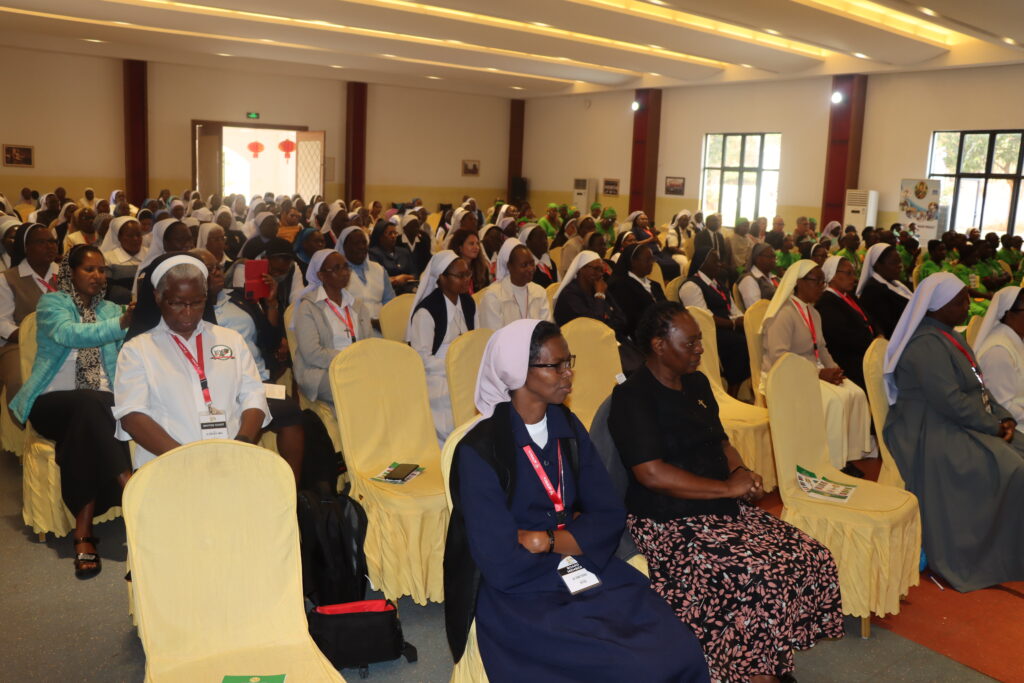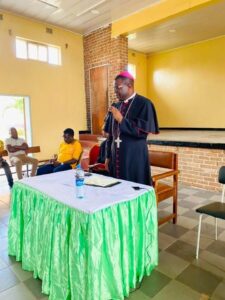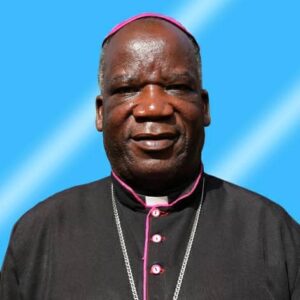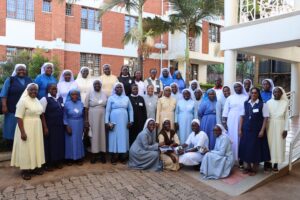ACWECA: Religious Formation Must Focus on Understanding and Living the Evangelical Counsels, Says Catholic Nun

Sr. Henriette Anne, FSSA
At the ongoing 19th plenary of the Association of Consecrated Women in Eastern and Central Africa (ACWECA) in Malawi, Lilongwe, Sr. Teresa Okure addressing the gathering of Religious women from across the region virtually on the “Holistic Religious Formation in View of Living the Charism of the Congregation and Gospel Values”, opined that the need for deeper understanding of the nature of Religious life as a foundational to effective formation.
“Holistic religious formation depends first and foremost on understanding the nature and essence of the religious life itself. If that foundation is missing, the formation will miss its goal”.
Focusing her presentation on the Gospel values, Professor Okure highlights the etymological understanding of Religious life which, according to her, stem from two Latin terms Ligare (to bid) and eligere (to choose), thus Religious life is a deliberate rebinding of humanity’s relationship with God, which was severed by sin, but now re-aligned or re-commitment to live according to God’s will.
“Religious life is a life of rebinding together of the relationship between God and humans that had been broken by sin and deviation from God, from self and others”.
Acknowledging that societal pressure that derails the purpose of religious Sr. Okure noted that there is a need for formation programs that empower women Religious to understand their dignity.
“We need not forget the deviation from self, especially in Africa where women have been groomed in their cultures to think nothing of themselves”, and where Africans, in general, have been socialized by colonialism to believe that they are somehow sub-human beings”. She added, “This truth calls for solid formation in self-awareness of what it means to be a woman, to be self–reliant, take godly pride in oneself as a woman, an African woman, and have in self-competence as a woman”.
According to Sr. Okure a member of the Society of the Holy Child Jesus (SHCJ), the formation of a Religious person is not about achieving a state of personal holiness that surpasses that of the laity, but instead, it is about growing into fulness of Christ, a journey that every Christian, religious or lay, is called to undertake. Therefore, religious people are not called to a superior form of holiness but to a life consecrated for the sake of others.
“These two verbs re-ligare and re-eligere give us the awareness that the main purpose of the Religious life is not personal sanctity, the call to a holier way of life than is expected of other Christians. Rather, every Christian is called to the holiest way of life because every baptized Christian, by God’s own doing, is “another Christ”.
She further emphasized that the holiness of the Christians is not something that the Christian chooses, elects, or works for, or merit; rather, it is God’s pure free gift, a construct of the life given to the Christians who at baptism, at the new birth, becomes “a new creation”.
Sr. Okure reminded the ACWECA assembly that what is required of Christians is to live the divine holiness by striving to grow in Christ expressing that “In other words, the formator of the Christian is one who, as Paul would say (Gal 4:19-20), is “in labour until Christ is formed in (the formees)”.
In her 20th August reflection, she added that without solid Christian virtues, a solid Christian life, Religious life has no solid foundation to rest on. Therefore, parents too should nurture and protect religious vocations in their children by instilling Christian virtues in their hearts.
Professor Okure who has been certified by the Vatican Dicastery for Culture and Education, pointed out that Religious life itself is a special charism within the Church, a gift of grace that is not earned but freely given by God. “The Church considers Religious life to be a special charism when it says, “The religious are those who undertake or choose to bind themselves to the Lord in a special way.”
According to the SHCJ member, “Another way of understanding grace is the circumstances of our coming into existence. None of us, no human being contributed anything to our coming into existence, or to being a human being, instead of a goat, for example. None of us contributed anything to any of the social circumstances of our being human: being female rather than male, born of our parents rather than of another, born in our family rather than in another, in one ethnic group not in another, country not in another. None of us contributed anything to our features, height (tall, short) complexion (dark or fair); or to our tribe, nationality, etc., etc. Life is pure, pure, pure grace. All we do is to receive, cherish and live it as pure grace and to say “Thank you” to God, as our blessed mother did in her Magnificat (Luke 1:46-55). Paul says to the boastful Corinthians”.
She continued that this grace, embodied in the charism of various congregations, is intended to build up the body of Christ, the Church, hence the religious by their life and mission, are called to participate in Christ’s work.


